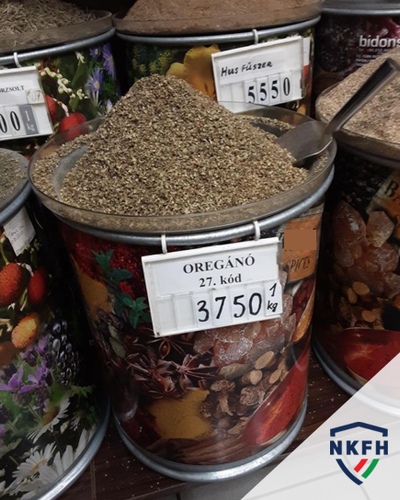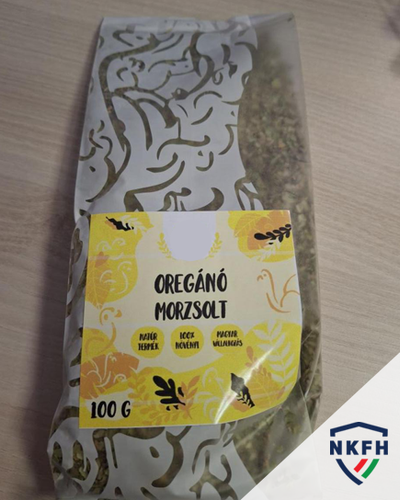Counterfeit and dangerous spices on store shelves – serious irregularities uncovered by the NATCP
Every second oregano sample failed the large-scale targeted inspection conducted by the National Authority for Trade and Consumer Protection (NATCP), which focused on two spices that are very popular in Hungary: oregano and ground pepper. More than 46% of the oregano samples tested proved to be problematic, with 4 out of 15 oregano samples containing foreign plants in 70-80% of cases on average. The inspections covered not only products available in traditional and online stores, but also spices sold in Oriental and bulk stores. Experts also checked the traceability, hygiene conditions, and storage practices of the products.
Between 2019 and 2021, the European Commission conducted a coordinated inspection involving 21 EU Member States, Switzerland, and Norway, during which 10,000 analyses revealed that oregano is the most commonly adulterated herb. Nearly half of the samples contained foreign plant material, typically olive or myrtle leaves. Reports from EFSA and EUROPOL also confirmed that oregano is one of the most commonly counterfeited herbs in Europe.
Growing and harvesting real oregano is more expensive than collecting olive or myrtle leaves. These are available in large quantities as cheaper substitutes and, when ground, have similar aromas and flavors, making them difficult for consumers to distinguish with their senses. Laboratory detection requires special, costly tests (DNA, chemical, and essential oil analysis).
Of the four stores inspected as part of the targeted inspection, two had inadequate traceability. In several places, spices were stored in uncovered containers, which customers could even reach into with their hands. The use of shared scoops also posed a serious hygiene risk. One store sold spices that were past their expiration date and did not have Hungarian labeling, which the authorities immediately removed from the shelves. The NATCP imposed a total fine of HUF 653,625 for the violations uncovered.
More than 46% of the oregano samples proved to be problematic. Tests showed that 4 of the 15 oregano samples contained foreign plants, on average 70-80%, and in some cases olive leaves made up 85% of the composition. Three products were found to contain dangerous substances (pyrrolizidine alkaloids) in quantities exceeding EU limits, which can cause liver damage in the short term and are potentially carcinogenic in the long term, posing a particular risk to children. Official proceedings have been initiated against the companies concerned. The samples of ground pepper tested complied with all requirements: no pesticide residues or microbiological contamination were found in them.
The aim of the NATCP is to remove dangerous or misleadingly labeled products from store shelves as quickly as possible and to increase consumer safety in the long term. The inspections also protect honest businesses and encourage manufacturers and retailers to comply with the rules.


Share with others!
Facebook shareAbout Us
Who we are?Complaint
Where can I turn to?Készült a Digitális Állampolgárság Program keretében.